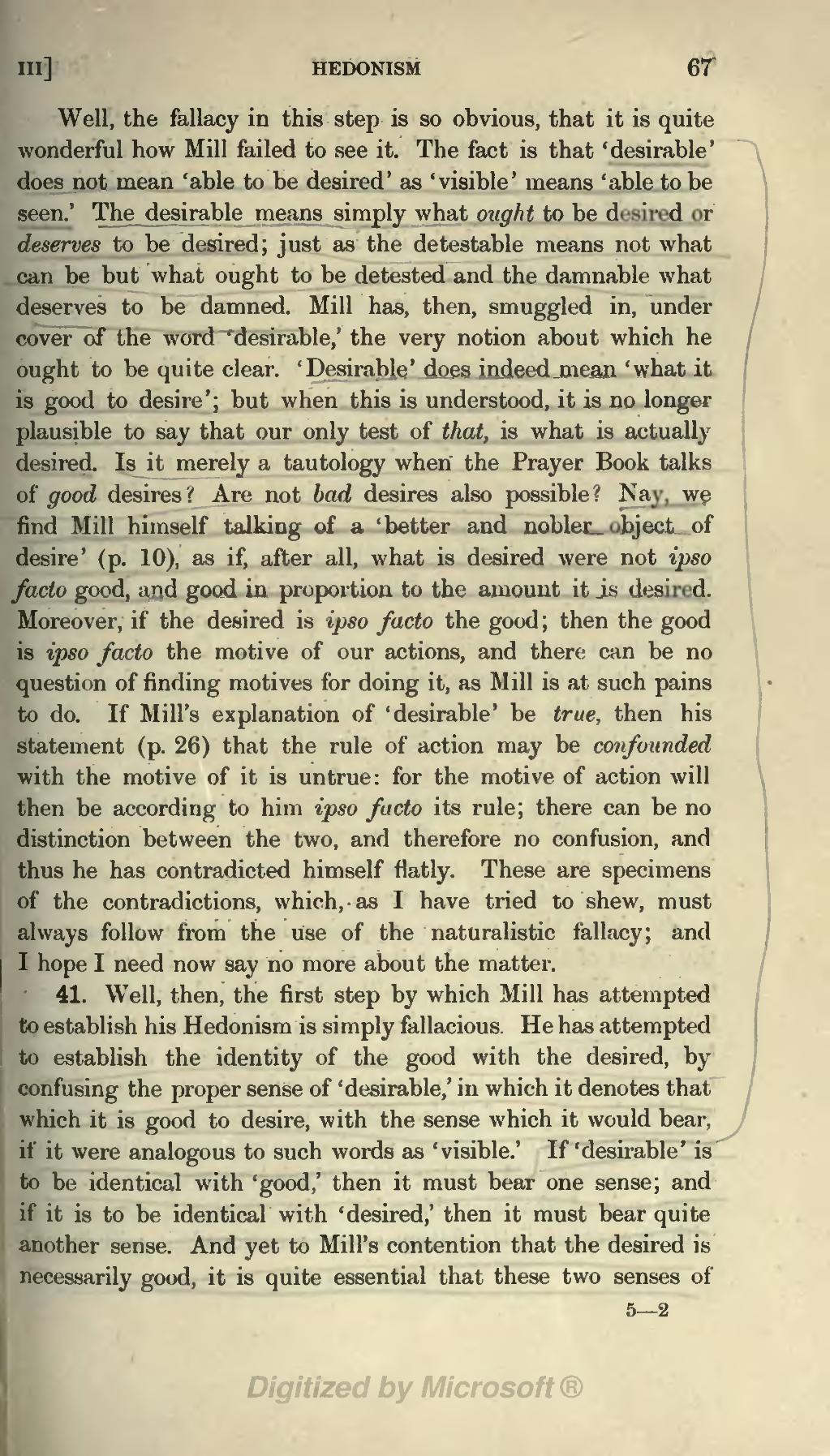Well, the fallacy in this step is so obvious, that it is quite wonderful how Mill failed to see it. The fact is that ‘desirable’ does not mean ‘able to be desired’ as ‘visible’ means ‘able to be seen.’ The desirable means simply what ought to be desired or deserves to be desired; just as the detestable means not what can be but what ought to be detested and the damnable what deserves to be damned. Mill has, then, smuggled in, under cover of the word ‘desirable,’ the very notion about which he ought to be quite clear. ‘Desirable’ does indeed mean ‘what it is good to desire’; but when this is understood, it is no longer plausible to say that our only test of that, is what is actually desired. Is it merely a tautology when the Prayer Book talks of good desires? Are not bad desires also possible? Nay, we find Mill himself talking of a ‘better and nobler object of desire’ (p. 10), as if, after all, what is desired were not ipso facto good, and good in proportion to the amount it is desired. Moreover, if the desired is ipso facto the good; then the good is ipso facto the motive of our actions, and there can be no question of finding motives for doing it, as Mill is at such pains to do. If Mill’s explanation of ‘desirable’ be true, then his statement (p. 26) that the rule of action may be confounded with the motive of it is untrue; for the motive of action will then be according to him ipso facto its rule; there can be no distinction between the two, and therefore no confusion, and thus he has contradicted himself flatly. These are specimens of the contradictions, which, as I have tried to shew, must always follow from the use of the naturalistic fallacy; and I hope I need now say no more about the matter.
41. Well, then, the first step by which Mill has attempted to establish his Hedonism is simply fallacious. He has attempted to establish the identity of the good with the desired, by confusing the proper sense of ‘desirable,’ in which it denotes that which it is good to desire, with the sense which it would bear if it were analogous to such words as ‘visible.’ If ‘desirable’ is to be identical with ‘good,’ then it must bear one sense; and if it is to be identical with ‘desired,’ then it must bear quite another sense. And yet to Mill’s contention that the desired is necessarily good, it is quite essential that these two senses of
